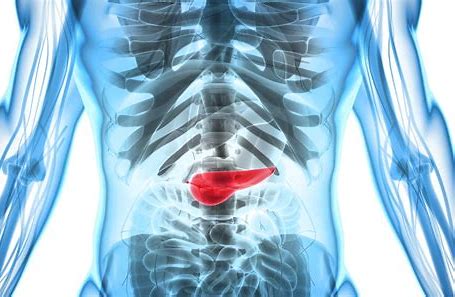29 March 2023 | Wednesday | News

Image Source : Public Domain
Propanc Biopharma, Inc. (OTC Pink: PPCB) (“Propanc” or the “Company”), a biopharmaceutical company developing novel cancer treatments for patients suffering from recurring and metastatic cancer, today announced that PRP suppresses the TGF-β pathway and the tumor microenvironment in pancreatic cancer, elucidated by one of the Company’s joint researchers, Mrs. Belén Toledo Cutillas MSc, at the laboratory of Professor Macarena Perán, PhD, University of Jaén, Granada, Spain. The experiments were conducted with a well-known small molecule inhibitor of the same pathway, comparing it against the effects of PRP, with results showing an even greater suppression by Propanc’s novel cancer therapy. TGF-β is a growth factor molecule involved in cell proliferation, migration and survival, and death that influences tumor growth in advanced forms of cancer.
In addition, Mrs. Cutillas also analyzed the same pathway comparing (i) a pancreatic tumor cell line along with a chemoresistant pancreatic tumor cell line with (ii) the same line treated with PRP. It was observed the TGF-β pathway, which is overexpressed in the chemoresistant cell line, decreased drastically when treated with PRP. Mrs. Cutillas concluded that the results appear to confirm that PRP can suppress not only the tumor microenvironment, but also chemoresistant tumor cells, which also plays a key role in how a malignant tumor grows and spreads. Further experiments will be conducted by developing a series of immunofluorescence and western blot studies that complement these results with other biomarkers.
Dr Julian Kenyon, MD, MB, ChB, Propanc’s Chief Scientific Officer said, “These results confirm that PRP exerts significant effects on the tumor microenvironment and the TGF-β pathway, which is a key biomarker for the way tumors become malignant, grow and spread, and develop resistance to standard treatments over time. I am convinced that PRP has the potential to act as an effective chemosensitizing agent against resistant solid tumors to standard treatment regimens, which often leads to a poor prognosis for cancer sufferers. We continue to generate convincing scientific evidence supporting PRP as a novel cancer therapy for the treatment of solid tumors, but without the side effects normally associated with standard treatment approaches. Our joint research team will continue to explore these opportunities with great interest as we advance to early-stage clinical development for PRP.”
PRP is a mixture of two proenzymes, trypsinogen and chymotrypsinogen from bovine pancreas, administered by intravenous injection. A synergistic ratio of 1:6 inhibits growth of most tumor cells. Examples include kidney, ovarian, breast, brain, prostate, colorectal, lung, liver, uterine, and skin cancers.
About Propanc Biopharma, Inc.
Propanc Biopharma, Inc. (the “Company”) is developing a novel approach to prevent recurrence and metastasis of solid tumors by using pancreatic proenzymes that target and eradicate cancer stem cells in patients suffering from pancreatic, ovarian, and colorectal cancers. For more information, please visit www.propanc.com.
The Company’s novel proenzyme therapy is based on the science that enzymes stimulate biological reactions in the body, especially enzymes secreted by the pancreas. These pancreatic enzymes could represent the body’s primary defense against cancer.
© 2026 Biopharma Boardroom. All Rights Reserved.